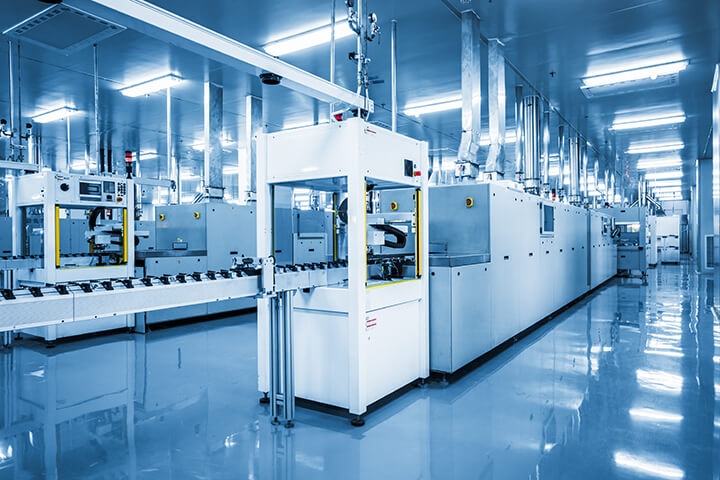
ASUS IoT-powered quality control: Automating the detection of defective screens
The enormous growth in the popularity of smart devices means demand for the glass display panels used for screens has increased dramatically. Quality control of these components is a key part of the production process. While such inspections are sometimes still performed manually, doing things this way is both time-consuming and costly. Moreover, inspections by human operators can themselves result in failure, be it a result of distraction, fatigue or any number of other factors. That’s why many quality-assurance processes are becoming automated – and ASUS IoT hardware is at the forefront of this unstoppable manufacturing trend.

The problem
Integrating automated inspection into existing production lines
Identifying defects in glass displays is a crucial part of the quality-control process in the manufacture of mobile phones, tablets and similar modern smart devices. In most settings, these are high-throughput processes, so inspection by human eyes is often impractical: the speed of modern production lines is simply becoming too fast for people to perform the task to an acceptable standard. For this reason, many manufacturers have installed automated inspection systems that employ machines to do the job instead.
Our client, a leading industrial-equipment system integrator (SI), had a need for a system that could integrate with existing production lines – and even existing defect-detection equipment – to specifically focus on finding flaws during the manufacture of glass screens. The required system needed to demonstrate steadfast reliability, superior compatibility and exceptional ease of use. It also needed to be simple to maintain.
The solution
High-speed, high-accuracy defect detection, empowered by ASUS IoT
Working in partnership with the SI, the ASUS IoT team combined an ASUS IoT Q170A-IM-A industrial motherboard with an ASUS IoT EBE-4U barebones rackmount server to support a bespoke glass-inspection machine for smartphone manufacturing. The pairing of these two versatile products, with the extensive connectivity offered by Q170A-IM-A, allowed the SI to create an industrial inspection machine with scope for significant expansion.
During the visual-inspection process, this custom machine is able to perform autonomously and reliably over long periods of time. Industrial-grade digital cameras employ high frame rates to detect surface defects, enabling the fast and accurate segregation of flawed glass screens.
The ASUS IoT team helped create a solution with a scenario-based design. With four PCI Express® and three traditional PCI slots, it is flexible enough to accommodate all manner of specialist expansion cards – from GPU and video-capture cards to frame grabbers. This creates a space-saving system that has the ability to grow or adapt to meet the needs of the business.
The outcome
A new era for digital visual inspections
Production of glass screens for mobile devices is a high-speed process that also demands extreme precision. Currently, it is not possible to entirely eliminate defects in the process – so visual quality control is a vital part of the production environment.
With the help of the ASUS IoT team and ASUS IoT hardware, the autonomous inspection machine created by our customer – the SI – minimizes human input and maximizes effectiveness. AI-powered deep-learning methods are employed to classify different defect classes, with the ultimate goal of reducing false positives.
Following the implementation of the system, the SI’s own customers are already realising significant benefits in terms of cost, performance and efficiency. As well as eliminating the problems of fatigue and other human fallibilities, both yield and efficiency reveal stunning advantages in the use of the SI’s solution over reliance on traditional manual-inspection methods. Each screen can be assessed in just moments, without needing to stop or even slow the production line.
The ASUS IoT team believes this to be merely the start of an era where quality control powered by digital inspections and machine learning will become an integral part of production across diverse industries. As a world-leading brand in industrial technologies, ASUS IoT is committed to bringing to market the edge-cutting innovations demanded by our customers – from automated visual inspection and beyond.
